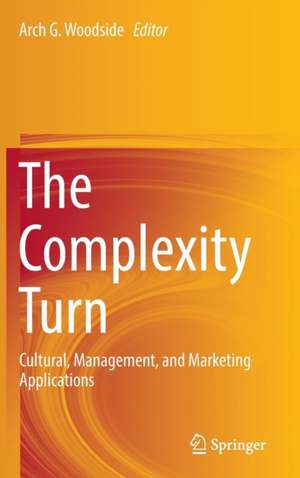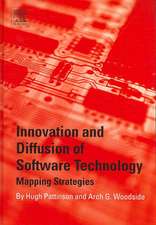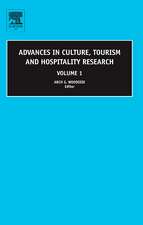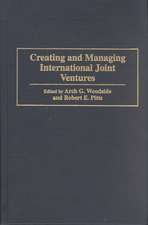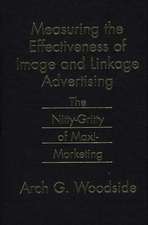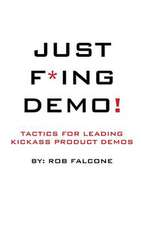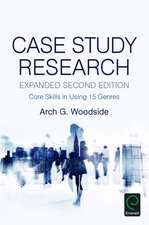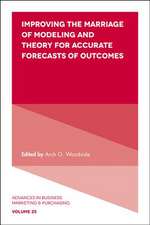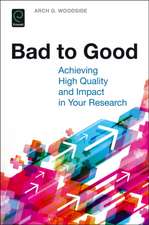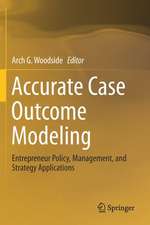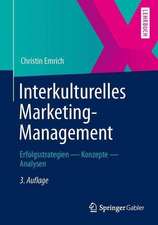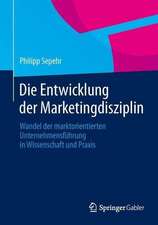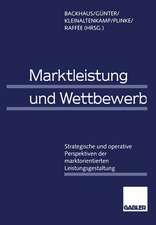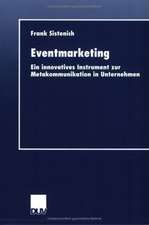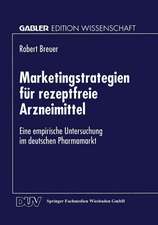The Complexity Turn: Cultural, Management, and Marketing Applications
Editat de Arch G. Woodsideen Limba Engleză Hardback – 23 feb 2017
| Toate formatele și edițiile | Preț | Express |
|---|---|---|
| Paperback (1) | 780.52 lei 6-8 săpt. | |
| Springer International Publishing – 13 iul 2018 | 780.52 lei 6-8 săpt. | |
| Hardback (1) | 786.52 lei 6-8 săpt. | |
| Springer International Publishing – 23 feb 2017 | 786.52 lei 6-8 săpt. |
Preț: 786.52 lei
Preț vechi: 959.18 lei
-18% Nou
Puncte Express: 1180
Preț estimativ în valută:
150.55€ • 163.58$ • 126.54£
150.55€ • 163.58$ • 126.54£
Carte tipărită la comandă
Livrare economică 21 aprilie-05 mai
Preluare comenzi: 021 569.72.76
Specificații
ISBN-13: 9783319470269
ISBN-10: 3319470264
Pagini: 228
Ilustrații: XXV, 254 p. 59 illus., 34 illus. in color.
Dimensiuni: 155 x 235 x 18 mm
Greutate: 0.57 kg
Ediția:1st ed. 2017
Editura: Springer International Publishing
Colecția Springer
Locul publicării:Cham, Switzerland
ISBN-10: 3319470264
Pagini: 228
Ilustrații: XXV, 254 p. 59 illus., 34 illus. in color.
Dimensiuni: 155 x 235 x 18 mm
Greutate: 0.57 kg
Ediția:1st ed. 2017
Editura: Springer International Publishing
Colecția Springer
Locul publicării:Cham, Switzerland
Cuprins
Chapter 1.Embracing the complexity turn in management research for modeling multiple realities.- Chapter 2. Taking the complexity turn in strategy management theory and research.- Chapter 3. The complexity turn in human resources theory and research.- Chapter 4. The complexity turn in behavioral pricing.- Chapter 5. The complexity turn in cultures’ consequences on entrepreneurship, innovation, and quality-of-life.- Chapter 6. The complexity turn to modeling firm heterogeneity in corporate social and financial performance.
Notă biografică
Arch G. Woodside is Professor of Marketing, Boston College. He is the Editor in Chief, Journal of Business Research. His research appears in marketing, psychology, tourism, and hospitality journals. His i10-index is 175 ins 2014 according to Google Scholar; his h index = 48. He is a Member and Fellow of the American Psychological Association, Association of Psychological Science, Royal Society of Canada, International Academy for the Study of Tourism, Society for Marketing Advances, and the Global Academy of Innovation and Knowledge. He is the Founder of the International Academy of Culture, Tourism and Hospitality Research. His work appears in Annals of Tourism Research, Tourism Management, Journal of Travel Research, Journal of Marketing, Journal of Consumer Psychology, Journal of Marketing Research, International Journal of Research in Marketing, Journal of Retailing, and 46 additional scholarly journals. He is the author, co-author, and co-editor of 50 books, 350 journal articles, and 220 book chapters. In 2013 he received an honorary doctorate degree from the University of Montreal. His Ph.D. in Business Administration is from Penn State, 1968.
Textul de pe ultima copertă
This book takes the reader beyond net effects and main and interaction effects thinking and methods. Complexity theory includes the tenet that recipes are more important than ingredients—any one antecedent (X) condition is insufficient for a consistent outcome (Y) (e.g., success or failure) even though the presence of certain antecedents may be necessary. A second tenet: modeling contrarian cases is useful because a high or low score for any given antecedent condition (X) associates with a high Y, low Y, and is irrelevant for high/low Y in some recipes in the same data set. Third tenet: equifinality happens—several recipes indicate high/low outcomes.
Caracteristici
Shows how-to go-beyond symmetric thinking and statistical-testing to think and test using recipes and algorithms Applies complexity theory tenets to think, analyze, and report alternative recipes (configurations or chains) leading to success or failure Chapters provide numerical examples of theory, methods, and findings in several disciplinary contexts
